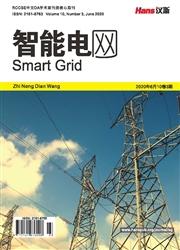Demand Model Generation from Traces: Adaptive KDE Data-Driven Optimization
引用次数: 0
Abstract
Nowadays IoT and big data technologies make it easy to collect a huge amount of precise data about geospatial mobility. This abundant data improves mobility systems' study and optimization by allowing the application of data-driven approaches to gather accurate mobility models. In this paper, we evaluate techniques based on the optimization of Kernel Density Estimation (KDE) for modelling and generalizing the observed spatial data. We show how traditional KDE models fail to generalize the information obtained from mobility datasets, if not properly tuned. This mostly comes from the heterogeneity of the data, which changes over time (e.g., day and night) and space (e.g., dense or suburban areas). These issues call for fine grained parameter tuning, which we solve by automatically finding the optimal parameters for classical and variable KDE (V-KDE) approaches. We extensively compare the models' errors in capturing the mobility patterns using car sharing data. Our results show how optimized KDE and V-KDE models can better capture mobility patterns than traditional KDE approaches, both in 2D (i.e., origin or destination only) or 4D (i.e., representing origin-destination matrices) scenarios. We offer our tool available as open-source as a python module.从轨迹生成需求模型:自适应KDE数据驱动优化
如今,物联网和大数据技术使收集大量关于地理空间移动的精确数据变得容易。这些丰富的数据通过允许应用数据驱动的方法来收集准确的移动模型,从而改善了移动系统的研究和优化。在本文中,我们评估了基于核密度估计(KDE)优化的建模和推广观测空间数据的技术。我们展示了传统的KDE模型如果没有适当调优,是如何无法泛化从移动性数据集获得的信息的。这主要是由于数据的异质性,它随时间(如白天和黑夜)和空间(如人口稠密或郊区)而变化。这些问题需要细粒度的参数调优,我们通过自动为经典和可变KDE (V-KDE)方法找到最优参数来解决这个问题。我们广泛地比较了模型在使用汽车共享数据捕获移动模式时的误差。我们的研究结果表明,优化的KDE和V-KDE模型如何比传统的KDE方法更好地捕获移动模式,无论是在2D(即仅原点或目的地)还是4D(即表示原点-目的地矩阵)场景中。我们提供了一个开源的python模块。
本文章由计算机程序翻译,如有差异,请以英文原文为准。
求助全文
约1分钟内获得全文
求助全文

 求助内容:
求助内容: 应助结果提醒方式:
应助结果提醒方式:


